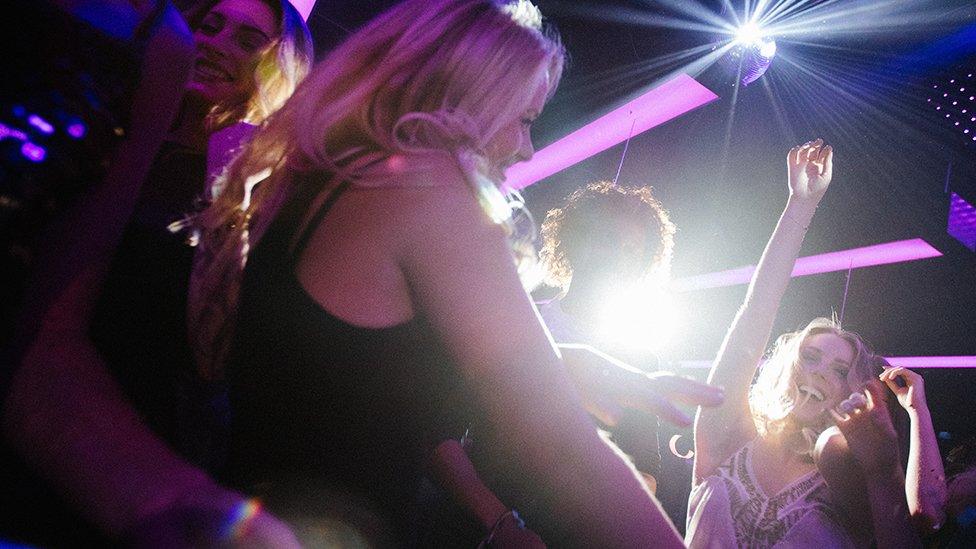Drink spiking in Manchester: 'Being spiked seemed to be my fault'
- Published
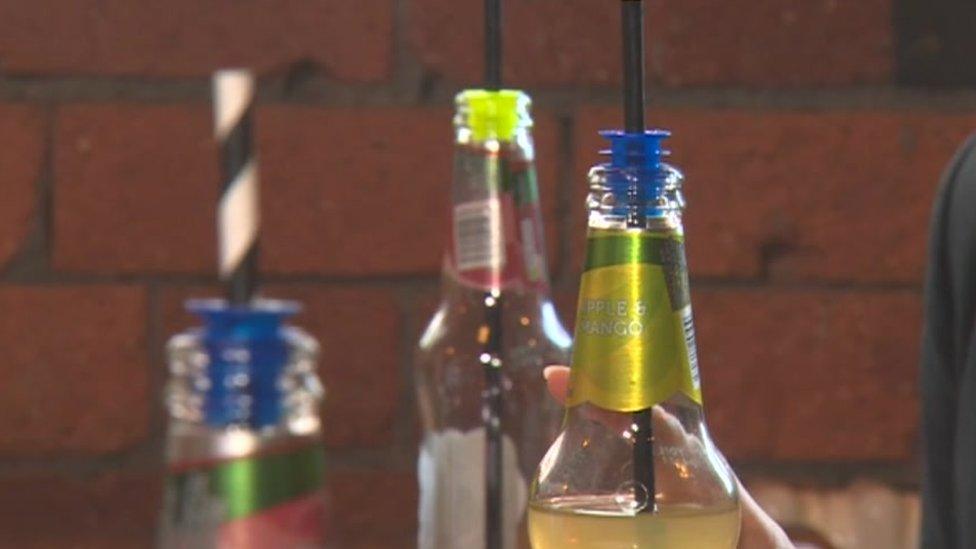
In some clubs and bars, anti-spiking devices are handed out with bottles
"Cover your glass, keep your drink with you at all times, never accept from strangers." If you head out to pubs and clubs, you will likely be very familiar with this guidance. But women have told the BBC that the advice alone is not enough and more needs to be done to prevent drink spiking.
Police forces across the country have been asked by the Home Secretary Priti Patel for an update following a number of cases of women who reported being spiked by needles in nightclubs.
Nottinghamshire Police says it is investigating 15 reports where victims reported effects that were "consistent with a substance being administered".
Meanwhile in Manchester, eight women have come forward to police to report that their drinks were spiked in recent weeks.
Women from the area who told the BBC about their experiences said tougher action needs to be taken against offenders.
'Some people will not believe you'

Student Fina has not wanted to go on a night out since her drink was spiked in Manchester
On 22 September, Fina Williams poured herself two gin and tonics at home before heading to a bar in Deansgate.
The 20-year-old met her friends at 22:00 BST and had two more drinks.
Just 45 minutes later, her friends found her outside the club alone - she had collapsed and was unconscious.
"After being taken home by my friends, my eyes had rolled back, I began to go cold and started frothing from the mouth," she recalls.
Fina was taken to hospital, where she was violently sick for several hours.
The student said she was not taken seriously that night.
"Being spiked seemed to be my fault and some people will not believe you unless it goes to the extreme," she says.
'Extreme mental distress and anxiety'

Laura-Louise said there needs to be a greater punishment for drink-spiking offenders
Laura-Louise Moloney decided to go sober for two years after she was spiked in Manchester in 2015.
"I only had three drinks at the bar but I was later found outside slumped on the floor outside by two women," she says.
The 25-year-old said she displayed the same symptoms as Fina.
"I was extremely sick and was shaking for weeks after... it all caused me extreme mental distress and anxiety," she adds.
"Many bars are now offering cling-film to cover drinks, it is lovely gesture but that is realistically all it is - a gesture."
Laura-Louise strongly believes the punishment for drink spiking should be the same as that for supplying Class A drugs.
She adds: "As a woman, why do we always have to be hyper-aware and go above and beyond to ensure our safety and security?"
'Drugging someone for a thrill'
On 16 October, Jess - not her real name - went out with a group of friends for her 19th birthday to a club in the Printworks.
Prior to going out, she said she had seen students "on a daily basis" reporting being spiked on social media.
"We were all being so vigilant. I only had three drinks and had my thumb in the bottle all night to be safe," she says.
Around 30 minutes after having two shots at the bar, Jess collapsed.
"I could not stand up and had to be carried out. I began shaking really violently, throwing up and could not talk," she says.
"Drugging someone for a thrill is so pathetic."
'Harsher punishments'
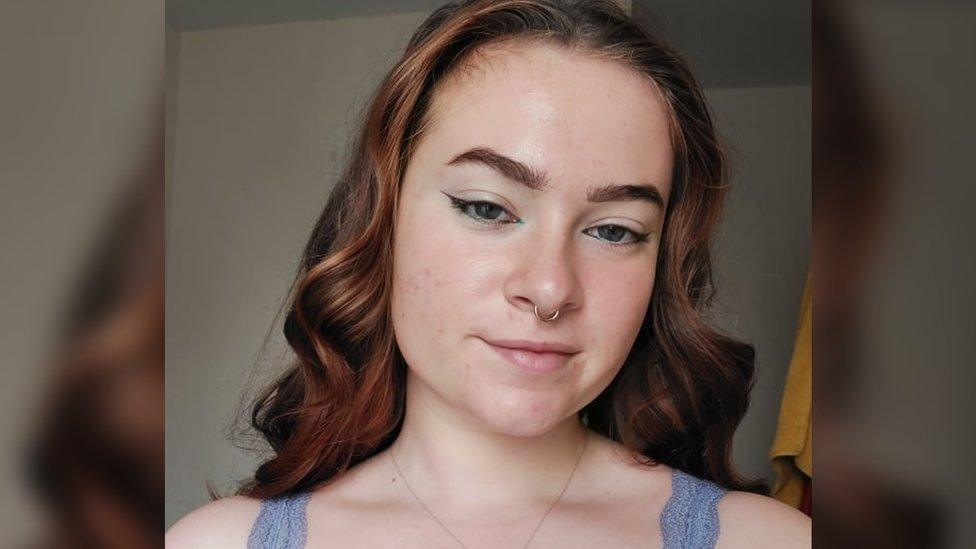
Bartender Rosa-May says spiking incidents are "not often taken seriously"
A campaign to boycott clubs and pubs in cities including Manchester and Leeds has been set up for 27 October.
The 'Girls Night In' protest demands that drink spiking is taken seriously as an issue.
Rosa-May Bown is a bartender working in two venues in central Manchester.
"We do what we can as bartenders to protect people that lose their friends, look too drunk or report being followed," she says.
"I think the only really viable solution is to teach people from a young age that they are not entitled to anyone else's body.
"There needs to be harsher punishments for spiking offences because as sad as it sounds it is not often taken seriously or actually prosecuted properly."
Student publication the Mancunion, external has been investigating the spikings and is offering a platform for victims to come forward anonymously.
"We believe the reports come from a combination of factors including the release from strict lockdown restrictions, the domino effect of women speaking out about sexual assault and the annual increase which seems to appear when new students arrive on campus," a spokeswoman said.
Greater Manchester Police (GMP) said three women were taken to hospital after being spiked at bar in Deansgate on 4 September.
Between 5 to 30 September, five women reported to the force that their drinks had been spiked in a bar in Fallowfield.
GMP said an investigation had been launched into both incidents and added it was taking drink spiking "very seriously".
The force has encouraged victims to report incidents to officers as soon as possible to "build a bigger picture and target those responsible".

Why not follow BBC North West on Facebook, external, Twitter, external and Instagram, external? You can also send story ideas to northwest.newsonline@bbc.co.uk
- Published22 October 2021
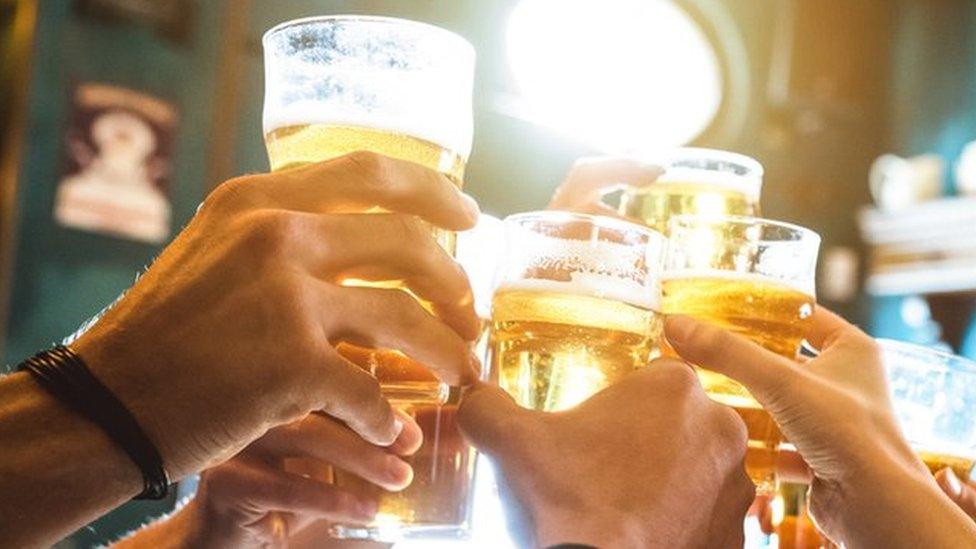
- Published22 October 2021
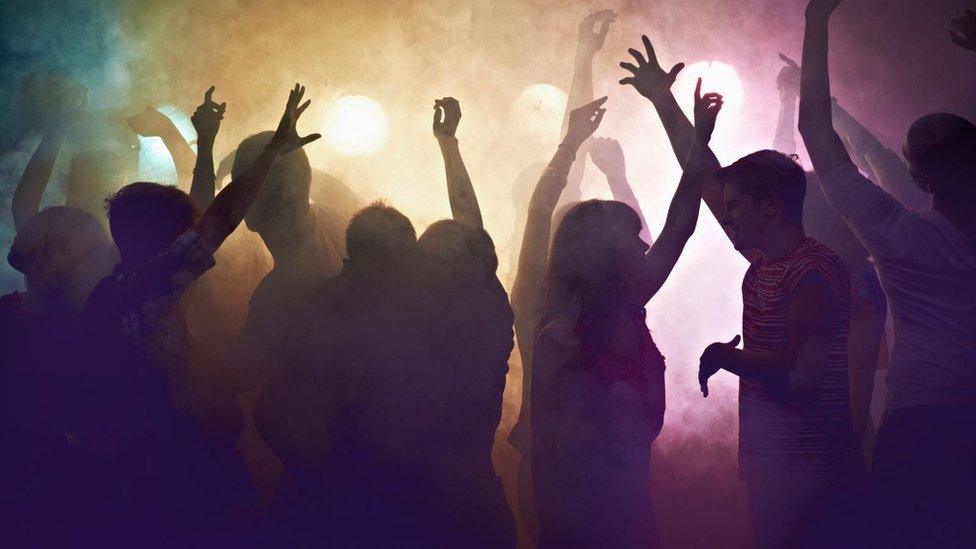
- Published22 October 2021
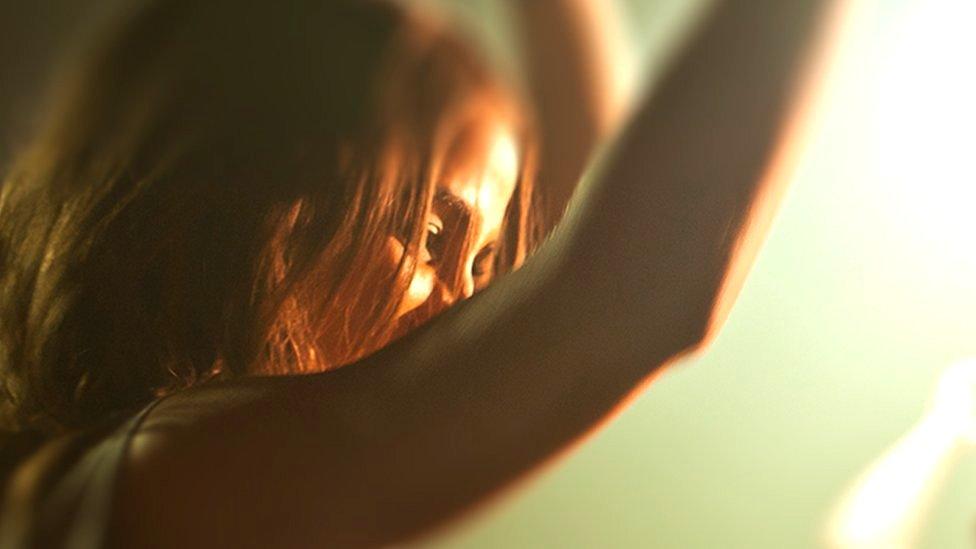
- Published22 October 2021
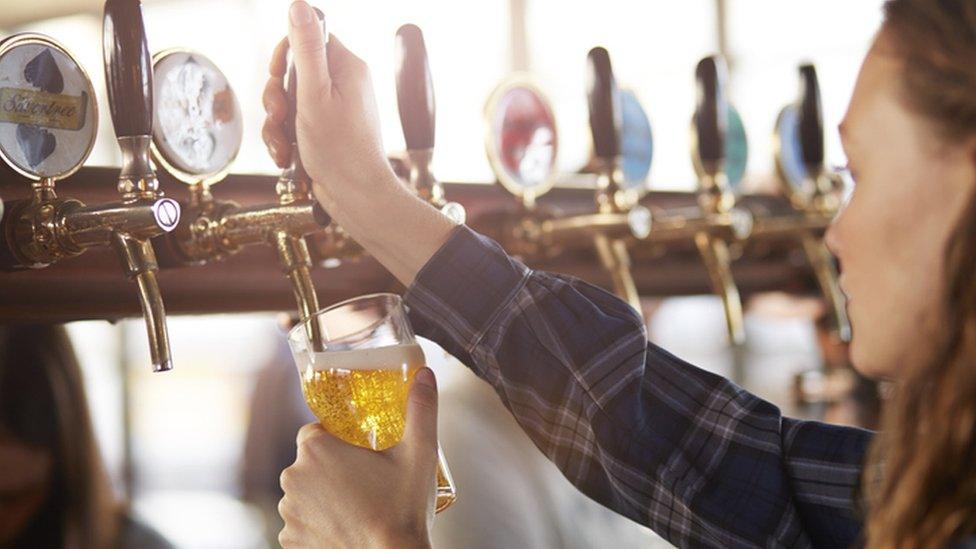
- Published21 October 2021

- Published20 October 2021

- Published20 October 2021
